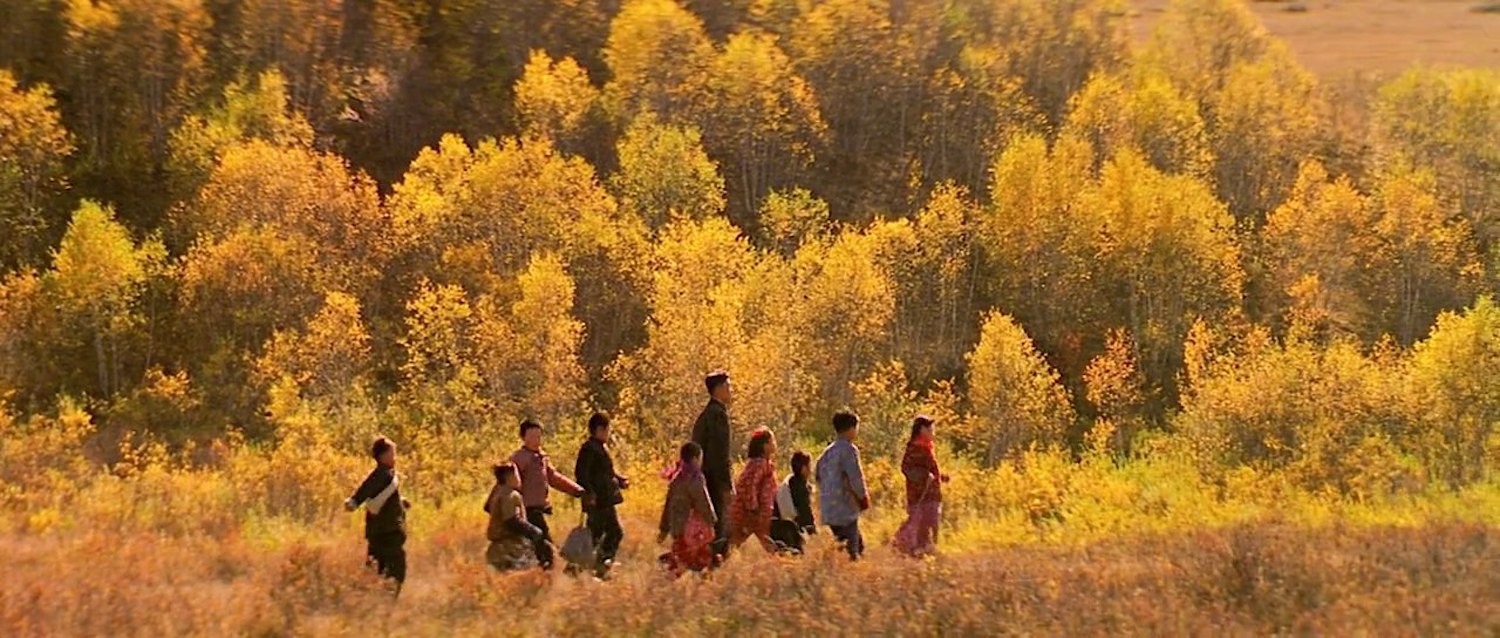
Produced: 1999, China
Set against the backdrop of the stunning rural scenery of the Shanxi province in the late 1950s, Zhang Yimou’s postsocialist nostalgia film centres on a sentimental love story between eighteen-year-old Zhaodi and the young teacher, Changyu, who has been posted to the village to open a new school. The film’s narrative unfolds in an extended flashback, remembered and narrated in a voice-over commentary by the romantic couple’s son, who returns to his native village in the late 1990s to perform the burial rites for his recently deceased father. To visualise the different structures of feeling that govern the nostalgically remembered past and the mundane present, The Road Home inverses a long-established cinematic convention by rendering the present in cheerless black-and-white whilst capturing the socialist past in vibrant colours, one of the hallmarks of Zhang Yimou’s exoticist style. Despite – or arguably because of – its overt depoliticization, The Road Home speaks to postsocialist China’s burgeoning nostalgia for Mao’s socialist era, which has flourished since the economic reform of the 1990s, which initiated a new era of neoliberal global capitalism.